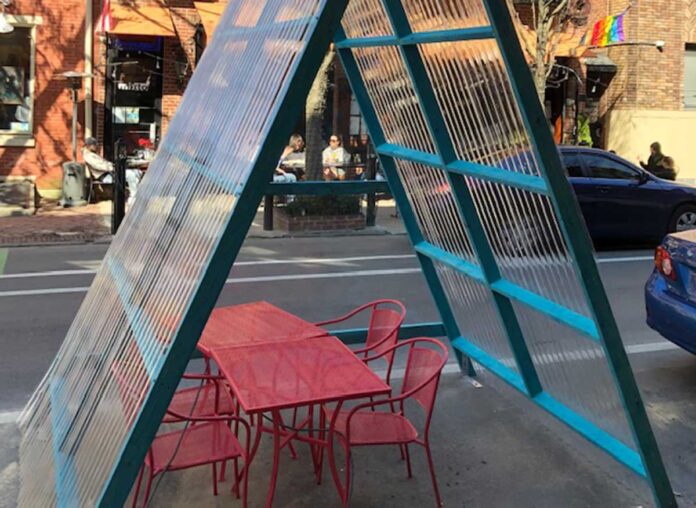Last year, PGN spoke with Gayborhood businesses to see how they were managing through pandemic regulations. Locally-owned businesses the world over have felt the sting of mandatory closings, reduced capacity, and operating in the face of lost revenue. We checked in with some of those Gayborhood spots, and compared to last year, this spring is blossoming.
Level Up Bar & Lounge, formerly known as JocksPHL, is the first 100% minority-owned LGBTQ-bar in Philadelphia. The current management acquired the business in March of last year, a week before the Commonwealth put restrictions into place. Despite the time frame of opening versus shutdown, they are flourishing.
“Since the pandemic hit, we have had to downsize a few times. With the weather starting to warm up, we have hired some old and new staff back,” Ken Lowe, Jr. Level Up’s Managing Partner explained. “We had to make a lot of changes and adjustments to adapt to the pandemic.”
Unhappy with the name Jock’s, Lowe and his business partner took the opportunity to rebrand as Level Up. The business looks forward to the continuing success of outdoor and socially-responsible indoor socializing, with the addition of a H13 HEPA air filtration system. Photos on social media show a happy, diverse crowd sipping at tables with masks at the ready.
Lowe is optimistic, with Tequila Tuesdays and Whiskey Wednesdays a hit for thirsty Philadelphians ready to socialize as carefully as possible. “Things are looking good for the spring and future of the bar. We have been seeing a lot of old and new customers.”
A few blocks away, Markus Aman of The Lion’s Mane Salon on Pine Street was delighted to speak with PGN almost a year after our last conversation. Hair salons, which require a lot of potential person-to-person contact, were especially hard hit by the pandemic.
“Thankfully, every week we have more clients returning. Many were waiting to come back until after they received their vaccinations,” Aman reported. In turn new and returning clients are relieved to learn that Aman’s staff is now fully-vaccinated as well. “Demand for haircuts and color is becoming stronger every day. By law we are still at 50% occupancy, which unfortunately is a detriment to business.”
Despite the reduction in client capacity, having to embark on several changes in the way he delivered services, and the departure of a colleague who returned to Europe, things are much better than last year when he had to shut down for four months.
“I learned to jump through hoops to fight for meager but lifeline PPP loans and become adaptable to change. I’d like to add that if it were not for the support of my incredible clients and the loyalty of my staff, I could have never made it.”
Happily, he is currently looking to expand his employee base and soon take on a new stylist.
Jeffrey Sotland, owner of Tabu Lounge and Sports Bar on 12th Street, is looking forward to the warmer months and the continued rollout of the COVID-19 vaccine. However, he remains realistic that while we might be far better off than last year at this time, it may be a while until we see “more of the light at the end of that dark tunnel.”
But things are not at all grim: Tabu is looking to hire more staff to accommodate customers.
“It’s great to see old friends, but it’s also refreshing to meet people who stop in and frequent Tabu who never were here before the pandemic.” A reduced menu is also du jour, which allows Sotland’s kitchen to focus on guest favorites. “Everyone appears to be very focused on about 10 items and every time we try to mix it up, people are just not very interested. Frozen drinks will be making a big return as well.”
Sotland credits local residents who frequented his and other storefronts as saving local enterprises.
Unfortunately, many Gayborhood businesses did not survive the pandemic challenges. Toasted Walnut, the last remaining lesbian bar in the city, had to shutter in February. Valanni, a restaurant loved by many Center City residents and Gayborhood boulevardiers, closed after nearly two decades. A statement via a GoFundMe page in March of 2020 explained the tapas bar had no choice but to close.
“If you look around and see the restaurants that did not survive,” Sotland said, “many are the result of landlords who refused to work with the tenant or needed an excuse to remove the tenant. The support from the community, including the sports leagues, performance community, and others was great. We look forward to continuing our support for the entire community as we move forward.”
